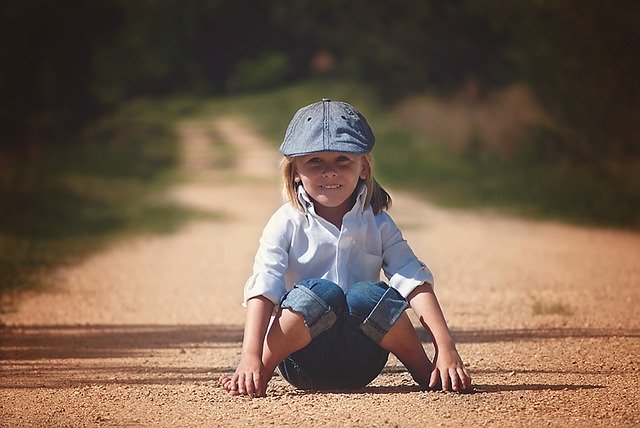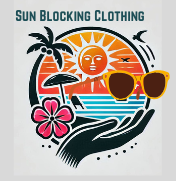I don’t live on a beach do I need sun blocking clothing? I do live in sunny central Texas. Yes, Texas has lots of sun-filled days, winter, and summer.

But, I don’t live on a beach do I need sun blocking clothing in the winter? Is sun-protective clothing even really that necessary?
I know, you are already tired of hearing about Texans thinking they should not have to go by any rules. However, as I understand things, we might be OK with normal clothing, as long as we have a safe lifestyle for protecting our skin.
What Is A Sun-Safe Lifestyle?
Living a sun-safe lifestyle is an important step in keeping your skin protected from the sun. Do you work in the sun all day? If so you have more adjustments to stay sun-safe than I do.
I could not help but think of the young lady who was a part of the roofing crew to replace our roof when the hailstorms came through. She had a darker skin tone but was very careful to wear a long sleeve shirt, a wide-brimmed hat, sunglasses, and long pants. She was careful to protect her skin.
However, I am not a roofer, what I am is a careless adult female who is in the middle of skin issues that my lifestyle allowed. I did not know.
Now I know better and have made some changes. Have you thought about your lifestyle and your skin protection needs? Do you need UPF clothing all the time? Everyday? I don’t most days. But when I am in the sun, I do wear clothing to cover my body.
Do you remember to apply sunscreen, even when staying in the house to prevent early aging? It is too late for me to prevent early aging, but applying sunscreen will slow down the effects the sun is having on my skin.
Avoiding being in the bright sun when the UV rays are so strong is something else that is important for my sun-safer lifestyle. My sun hat and sunglasses as well as the sunblocking shirt are my new ways of protecting my skin. Do you have a good sun protection plan?
Do Normal Clothes Block UV Rays?
How do normal clothes block UV rays?
Blocking the sun from your skin with clothing made from tightly woven cloth, and colors in the darker color range. This simple act can be the basis for your regular clothing to protect your skin.
But do you live on the beach? If you do, you will probably be out in the sun a lot more than someone who lives in other places. Your lifestyle is very important when making changes for skin protection from the sun.
Don’t leave all the protection for your clothing to do. We no longer live in the 1950s when my parents were learning about taking care of kids’ skin. We know that the sun is dangerous, and can cause serious problems to our skin.
Lifestyle is the single important thing to consider when you are making some changes for keeping yourself and your family safe from the sun. In this post, I am thinking about our everyday life. Not vacations when there may be extra sun exposure.

How Can I Protect My Skin From The Sun?
How can I protect myself from the sun without using sunscreen?
Can clothes replace really sunscreen?
Clothing won’t replace sunscreen 100%. However, clothing will be better long-term protection for your skin than just sunscreen. The best results happen when you use both.
When shopping for sun blocking clothing in your closet, use these guidelines:
- Darker-colored fabrics usually provide more UV protection than lighter colors. Black, brown, and blue of course, but just deeper colors even dark reds.
- Tighter weaves provide more UV protection than looser weaves, think denim, or twill.
- Polyester and nylon and blends of these fabrics offer more sun protection than natural fibers.
Let’s Look At Your Risks
Let’s look just a moment at what makes you high risk.
UPF-rated clothing is important for people with risks. If you have a lower risk, maybe your sun blocking clothing is in your closet.
- Are you especially sun-sensitive? Does your skin sunburn or freckle easily? There are many reasons you may be more susceptible to sunburn. If you have lighter skin color or a large number of moles.
- Do you genetically have a darker skin tone? If you have a deeper skin tone this indicates that you have more melanin in your skin. But, with darker pigmentation, it also makes UV damage harder to spot. This can cause you to be careless.
- Kids and Senior Citizens are more vernable. Younger kids have relatively thin, sensitive skin. This makes any damage from the sun more dangerous. Damage recieved at an early age increases the risk of serious problems later in life. Remember, skin damage builds up over time, increasing the health risk for all senior adults as they age.
- Those who live in the higher elevation parts of the world. The sun’s rays are stronger when the air is thinner, as in the mountains.
- Or for those in equatorial regions, or on snow or water your risks require more attention. When the sun is more directly overhead, UV rays have a shorter path to get to your skin through the atmosphere, as in equatorial regions.
These risks change how you should go about your everyday skin protection from the sun. You may need to do some major lifestyle changes to keep your skin safe from sunburn.
Don’t Overlook Medications
Unfortunately, medications can cause problems as well.
People taking medications often forget they are taking medication that can cause them to be more sun-sensitive. Increased sun sensitivity can be increased by a wide range of medications.
Many are taken for longer periods of time like acne treatments, antihistamines, antibiotics, and certain anti-inflammatories. Sometimes our vitamins if they are herbal supplements. Consider all your medications which might raise your risks in the sun. Read all information supplied to look for sun reactions.
Will Covering My Skin Stop Vitamin D Production?
Vitamin D is important to our well-being. The studies done for testing how our bodies make vitamin D while covered are still being filtered through the scientific community, and are not conclusive.
All it takes is 15 to twenty minutes of sun on your arms and legs 3 or 4 days a week to supply your body’s needs. However to risk your skin’s health by overexposure and at more dangerous times, is not a good idea.
15 or 20 minutes in the mornings, or late afternoons will keep you healthy, a few days a week is all it takes.
Sunscreen products with UV filters could cause some questions since they protect users against the sun during outings. There is just not enough information to support the claim that sunscreen causes vitamin D deficiencies.
Consider these all the alternative sources of Vitamin D we get through the day. There are, of course, supplements or vitamins that we take, milk has been boosted with additional vitamin D. Breakfast cereals have vitamin D added to the product during production.
Then think about it, how often do you use sunscreen, and do you really get enough on your body? The backs of your hands lose some of their protection by pulling gloves off and on. The sunscreen on your face disappears in 2 hours, the manufacturers tell us.
Do you get 15 minutes of sun exposure before you reapply? There are many times we get accidental sun exposure. Your body is efficient in making the needed vitamin D. Staying healthy is important, but don’t overdo the sun exposure. Develop a healty lifestyle for skin health.
Source for information:
https://www.skininc.com/science/physiology/article/21878019/sun-protection-vs-vitamin-d-production
Sun Blocking Clothing Every Day Even If You Don’t Live On The Beach
Finding a lifestyle to enable you to protect your skin easily every day is important for skin health. You don’t want to try for changes that will be impossible to sustain. This isn’t for the short haul, this is a life-long necessity.
Have you made some changes?
- Remember the sunscreen on the face and upper chest every morning?
- Grabbing sunglasses when going out in the daylight world?
- Putting on your sun blocking hat to protect your face more?
- Slipping on your loose-fitting long-sleeve shirt of tightly woven fabric when you will be exposed to the sun’s rays?
- Do you have driving gloves that block sun rays while you are driving?
- Schedule outdoor activities in the safer times of the day, before 10 AM and after 4 PM.
- Staying hydrated when out? Even when you are commuting?
- When waiting, choose the shady side, not the sunny one. Look for oppurtunities to be in the shade when out for longer periods of time.
There are many places to start working on your sun-safe lifestyle. This is one part of your life that is definately a lifelong effort and will pay many dividends. Choose a couple of the areas to work on, and see how you can improve your life.
Next year, you can add a couple of healthier habits. Just make yourself aware. There are some things we can do.

Sami’s Take on “I Don’t Live On The Beach Do I need Sun Blocking Clothing?
As my personal awareness grows about sun damage and my skin, I have made some changes. I do have a healthier lifestyle for our sunny climate.
Am I doing everything I can? No, unfortunately, I am not. However, I can claim some better habits. Sunscreen daily is now a habit. Our times out in the sun are more prepared for. For some reason, football coaches are not into sun-safe practice or game times, yet.
Baseball games seem to be scheduled at the sunnier times. We are much more careful about covering ourselves with clothing and umbrellas or other man-made shades.
Learning to live in the sunny world we live in is a work in progress. We are doing better. I feel progress is being made. Others who see us being more careful are influenced, even when they didn’t come as prepared. Are we leaders in sun protection and fun in the sun?
Maybe not yet, but soon?
How is your awareness? Has it produced actions?
Please share your suggestions for staying safe in our everyday life. We can all learn together.
Thanks,
Sami
